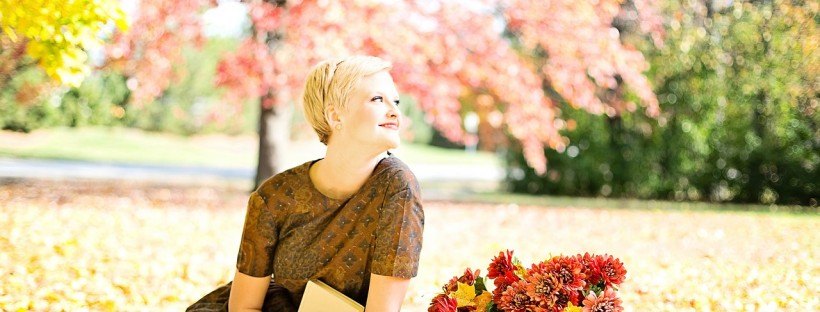According to data gathered in 2014, 42% of college students will not read another book after graduation. Now, graduating from college is terrifying, because it’s like getting pushed out of a nest: you’ve got to fly, but you don’t know how, and you have to make progress to stay afloat. Progress = growth, and one of the easiest ways to make it is to read. Sure, you could watch a TED talk or learn a third language, but think about how many books are out there: books to read, books to reread, books to say you’ve read. Okay, maybe not that last one.
Everything changes in college. You grow so much in those four years – seven, in my case – but you often don’t realize it until you revisit things you once loved. Suddenly you notice how gross Manhattan is, how much Sons of Anarchy owes to Shakespeare, and how significant Neo’s book choices are to The Matrix. The world looks different because you grew.
The best part is that you can now learn new lessons from old sources because you have attained higher levels of understanding. You have to seek these new lessons out, however. This list of books to reread is a great place to start, and, if you haven’t already read them, I encourage you to read them for the first time.
13 Books to Reread after College
Margaret Atwood – The Handmaid’s Tale
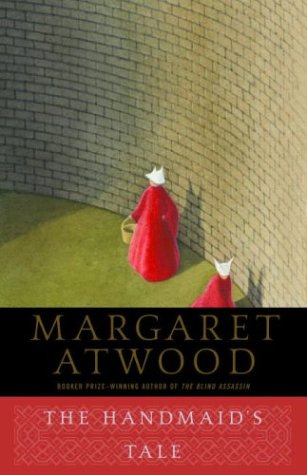 I’m sure people who know me are groaning – and possibly clicking away from this page – right now because they’re just so damn tired of hearing me talk about this book. Protesting that I ordered the books on this list alphabetically by authors’ last names will only elicit more groans and clicks away, so I’ll just be brutally honest: I love this book.
I’m sure people who know me are groaning – and possibly clicking away from this page – right now because they’re just so damn tired of hearing me talk about this book. Protesting that I ordered the books on this list alphabetically by authors’ last names will only elicit more groans and clicks away, so I’ll just be brutally honest: I love this book.
The Handmaid’s Tale is still important today, more than thirty years after it was published. Atwood’s depiction of life in the US following a hostile takeover by a group of biblical patriarchy zealots was a warning to marginalized groups: Don’t get comfortable. It could happen to you. While The Handmaid’s Tale is an extreme example, equality for women, racial minorities, and LGBTQ individuals continues to elude the US.
This list of books to reread gets a lot less political from here, but, even if you hate politics, you should really read The Handmaid’s Tale. It’ll remind you to always keep your rights in mind.
Richard Bach – Jonathan Livingston Seagull
 Jonathan Livingston Seagull is a 1970 kid’s book with a lot of pictures of seagulls in lieu of illustrations. It’s also a really, really good fable of enlightenment, self-acceptance, forgiveness, and human potential.
Jonathan Livingston Seagull is a 1970 kid’s book with a lot of pictures of seagulls in lieu of illustrations. It’s also a really, really good fable of enlightenment, self-acceptance, forgiveness, and human potential.
The book’s eponymous fowl is a forward-thinker and dreamer à la John Lennon’s Imagine. His friends and family reject him and his ideas, but, after he achieves the enlightenment he desires, Jonathan doesn’t desert them.
Jonathan Livingston Seagull‘s moral is of particular importance to those who went to college and left behind ignorant families and communities. While I’m not advocating putting yourself in danger, by any means, if you can return safely and peacefully to impart your newfound wisdom: do so.
Ann Brashares – The Sisterhood of the Travelling Pants
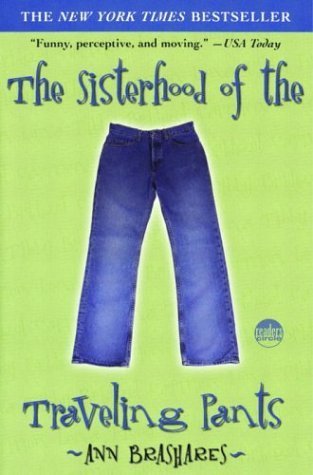 University is where many of us meet our true friends, the ones who’ll be there for us no matter what. Depending on where you live and where you went to school, however, your group of friends might splinter as life takes each of you in a different direction.
University is where many of us meet our true friends, the ones who’ll be there for us no matter what. Depending on where you live and where you went to school, however, your group of friends might splinter as life takes each of you in a different direction.
But never fear! The Sisterhood of the Travelling Pants has got you covered. Four friends separated for the first time find a pair of – I swear, magical – pants they can all wear, and share them throughout their summer apart.
You don’t have to find a great article of clothing to keep in touch with your college buddies, but rereading The Sisterhood of the Travelling Pants will remind you how easy it is to keep them in your life.
F. Scott Fitzgerald – The Great Gatsby
 You probably read F. Scott Fitzgerald’s most famous novel in high school, hated it, and never picked it up again, right? Trust me: give it another shot.
You probably read F. Scott Fitzgerald’s most famous novel in high school, hated it, and never picked it up again, right? Trust me: give it another shot.
The Great Gatsby is an American classic, but that isn’t the reason why it’s on this list of books to reread after college. Fitzgerald’s novel is all about definitions of success, privilege, and honor; it’s about the American Dream.
When you read it in high school, you probably didn’t understand how many Jay Gatsbys there are in the world, or to what extent you would have to become one. You didn’t read the novel as a cautionary tale against the excesses of wealth and privilege. In short, you missed the point, so try reading The Great Gatsby again.
Zora Neale Hurston – Their Eyes Were Watching God
 Zora Neale Hurston’s 1937 novel is a celebration of black womanhood. Heroine Janie Crawford occupies the precarious intersection of poverty, blackness, and femaleness, and, through her experience, readers are able to examine the social divides that run along class, race, and gender lines.
Zora Neale Hurston’s 1937 novel is a celebration of black womanhood. Heroine Janie Crawford occupies the precarious intersection of poverty, blackness, and femaleness, and, through her experience, readers are able to examine the social divides that run along class, race, and gender lines.
Their Eyes Were Watching God was, at least in part, a rejection of early-20th century respectability politics which demanded, among other things, that black women adopt the prudish, sexless primness of well-off white women. These notions of how people of color should and should not conduct themselves are still around today and remain just as problematic.
Make Their Eyes Were Watching God one of the books you reread after college and absorb all the life lessons you missed before.
Jack Kerouac – On the Road
 If you’re like me, you probably read On the Road in high school, when you were starting to question the necessity of a college degree. You romanticized Sal and Dean’s adventures and wanted in on their bohemian lifestyle.
If you’re like me, you probably read On the Road in high school, when you were starting to question the necessity of a college degree. You romanticized Sal and Dean’s adventures and wanted in on their bohemian lifestyle.
Thankfully, you grew out of that way of thinking, and now you’re a college grad. But all your doubts about college have begun to creep back in, now that the economy’s got you by the ovaries, and you’re starting to wonder if you didn’t have it right the first time.
You need to reread On the Road to keep yourself going. You don’t have to hop a Greyhound to God-knows-where tonight, but just knowing that escape and change are possibilities will get you through plenty of difficult times in your post-college life.
Lois Lowry – The Giver
 Like many of the other books on this list, The Giver is probably a title you read once – and only once – for school. If you didn’t revisit it in anticipation of the 2014 film adaptation, you need to reread it now.
Like many of the other books on this list, The Giver is probably a title you read once – and only once – for school. If you didn’t revisit it in anticipation of the 2014 film adaptation, you need to reread it now.
There will always be times when you feel like crawling into your bed, crying, and giving up on everything. That doesn’t change when you get a college degree, and neither, unfortunately, do the people who will criticize you for your emotional responses.
Lowry shows us a world where all feelings – even love – are suppressed in the name of peace. Rereading The Giver after college will help you remember to appreciate your emotions, both good and bad.
Niccolò Machiavelli – The Prince
 It is both advantageous and regrettable that Machiavelli’s treatise on rulers’ conduct is taught in high school. The Prince is a fantastic piece of literature, but its significance and message is lost on many – if not most – high schoolers.
It is both advantageous and regrettable that Machiavelli’s treatise on rulers’ conduct is taught in high school. The Prince is a fantastic piece of literature, but its significance and message is lost on many – if not most – high schoolers.
Why? Because it’s all about how to manage underlings and maintain your position. Granted, Machiavelli’s advice is often extreme and sometimes corrupt, and The Prince was never intended to be wholly without irony.
As we’ve seen with the other entries on this list, oftentimes the books we read as teenagers are the ones we need most as adults. Particularly for those of you going into business – or, more relevantly, politics – The Prince must be on your list of books to reread after college.
L. M. Montgomery – Anne of Green Gables
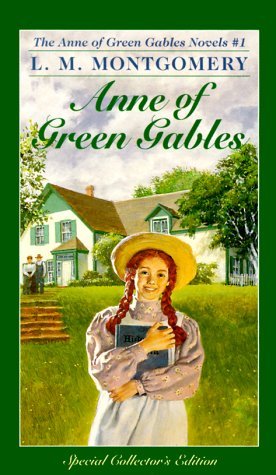 Reading Anne of Green Gables as a kid was like growing up with a bosom friend: her mistakes made yours easier to handle, her friendship with Diana was the model for all your real-life friendships, and her self-confident quirkiness was infectious.
Reading Anne of Green Gables as a kid was like growing up with a bosom friend: her mistakes made yours easier to handle, her friendship with Diana was the model for all your real-life friendships, and her self-confident quirkiness was infectious.
Life after college is full of uncertainty. You’re faced with a lot of adult decisions, many of which you won’t be prepared to make. And no one, not even the wisest person you know, can tell you what choices to pick.
Having Anne of Green Gables among your books to reread after college will inspire you to own your decisions – even the bad ones – and to hold onto what makes you truly unique.
J. D. Salinger – The Catcher in the Rye
 Of all the books you reread after college, The Catcher in the Rye will probably be the one most changed, in your eyes. While Holden Caulfield was once the voice of your teenage discontent, once you hit your early twenties he begins to sound painfully young and inexperienced.
Of all the books you reread after college, The Catcher in the Rye will probably be the one most changed, in your eyes. While Holden Caulfield was once the voice of your teenage discontent, once you hit your early twenties he begins to sound painfully young and inexperienced.
Of course, as I’ve previously stated, that’s no fault of Holden’s. He’s a rich, white kid who doesn’t understand privilege, but he still has an opportunity for redemption.
After you graduate, you start turning into the same kind of adult you used to hate: the kind who doesn’t trust the younger generation. It’s important to remember that a person’s feelings aren’t validated by their rationality, and that’s exactly what rereading The Catcher in the Rye will make you do.
Jerry Spinelli – Stargirl
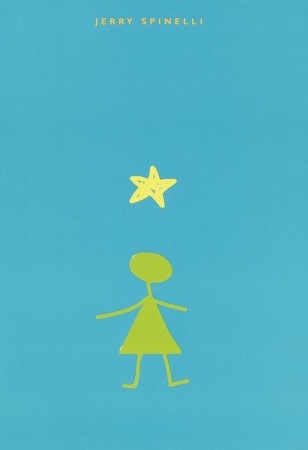 Stargirl was one of my favorite books as a kid. Like Montgomery’s Anne Shirley, Spinelli’s eponymous Manic Pixie Dream Girl is dauntlessly free-spirited and whimsical. She’s weird because it suits her, and so was I.
Stargirl was one of my favorite books as a kid. Like Montgomery’s Anne Shirley, Spinelli’s eponymous Manic Pixie Dream Girl is dauntlessly free-spirited and whimsical. She’s weird because it suits her, and so was I.
Manic Pixie Dream Girls are all kinds of problematic, but Stargirl presented its title character’s demeanor as a mask for a painful and unknown history. Narrator Leo can’t hope to know Stargirl, and readers are never under any impression that he does.
Stargirl reminds to be careful in our judgments of others, but it also shows us how the impressions we make affect those we leave behind, for better or worse.
Voltaire – Candide
 Of all the books on this list, Candide most likely has the broadest application. Certainly anyone who can be inspired to improve the world should be, and that’s exactly what Voltaire’s satire does.
Of all the books on this list, Candide most likely has the broadest application. Certainly anyone who can be inspired to improve the world should be, and that’s exactly what Voltaire’s satire does.
While Candide can be read largely as a religious – or anti-religious – text, its message does not preclude community service, charity to others, or social activism. Rather, it leaves open the possibility that, if this is not the best of all possible worlds, humans may improve upon it.
Much like the first entry on this list, Candide will prevent you from becoming complacent. If you put it on your list of books to reread after college, you’ll be surprised how much more it inspires you as an adult.
What books would you add to this list? Let me know by leaving a comment!
Image credit: Anchor/Goodreads, HarperCollins/Goodreads, Delacorte/Goodreads, Scribner/Goodreads, HarperCollins/Goodreads, Penguin/Goodreads, Ember/Goodreads, Dover/Goodreads, Starfire/Goodreads, Back Bay Books/Goodreads, Scholastic/Goodreads, Dover/Goodreads
